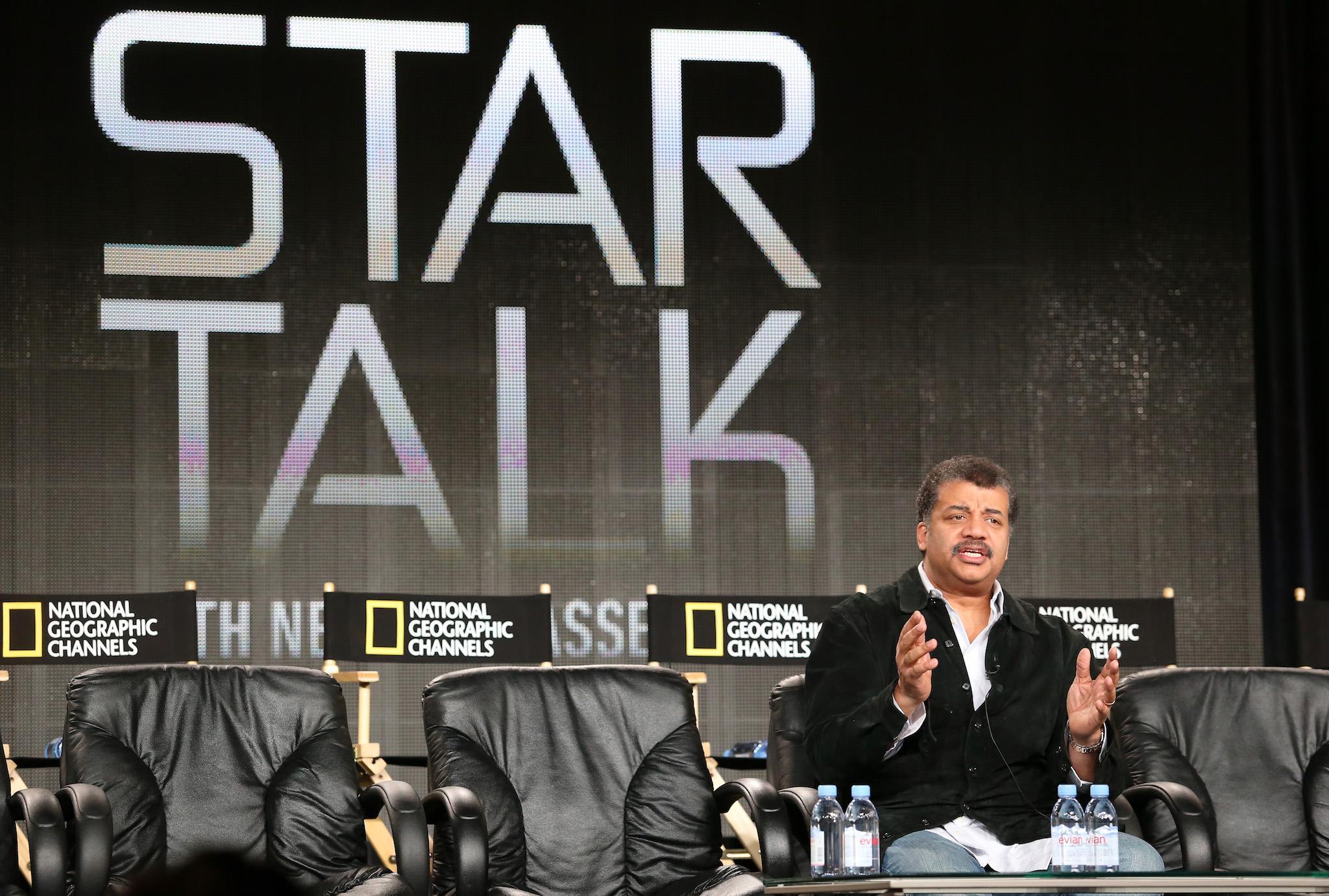Eclipse 2017: Neil deGrasse Tyson says people should watch the total solar event not video it
(Obviously nobody should actually be looking at it happening, directly)

Your support helps us to tell the story
From reproductive rights to climate change to Big Tech, The Independent is on the ground when the story is developing. Whether it's investigating the financials of Elon Musk's pro-Trump PAC or producing our latest documentary, 'The A Word', which shines a light on the American women fighting for reproductive rights, we know how important it is to parse out the facts from the messaging.
At such a critical moment in US history, we need reporters on the ground. Your donation allows us to keep sending journalists to speak to both sides of the story.
The Independent is trusted by Americans across the entire political spectrum. And unlike many other quality news outlets, we choose not to lock Americans out of our reporting and analysis with paywalls. We believe quality journalism should be available to everyone, paid for by those who can afford it.
Your support makes all the difference.Neil deGrasse Tyson has one big tip for the solar eclipse: watch it. And don't do anything else.
The famous astrophysicist has warned people against videoing or taking photos of the event and not taking it in.
Instead, people should make sure they "Experience this one emotionally, psychologically, physically", he told an audience at the American Museum of Natural History.
On 21 August, the moon will move in front of the sun, and create the first total solar eclipse to pass over the entire width of the US for 99 years. It's expected to be one of the biggest tourist events ever – and will also obviously be the first time that such an event has happened in a US where everyone has smartphones and cameras.
Tyson, the director of the museum's Hayden Planetarium and host of the podcast "StarTalk," said missing the eclipse "would be to not live as full a life as you could have" — and having a video of it doesn't match watching it happen.
"I get it — you want to look at it later. But then you would not have experienced it in the moment," said Tyson, who also has appeared on the CBS sitcom "The Big Bang Theory."
(Of course, taking in the eclipse directly doesn't actually mean looking at it, which can be dangerous. Nasa has released a full guide to watching the events safely.)
His remarks resonated with Hanneke Weitering, who's travelling from Brooklyn to Nashville, Tennessee, to watch the eclipse. The 24-year-old marked the date in her calendar as a college undergraduate.
"I've been looking forward to it ever since," she said.
For those unable to buy special glasses to view the sun safely, Tyson, recommends holding a spaghetti strainer to the ground and looking at the images it creates below, like a pinhole camera.
And however one views it, "recognise that, occasionally, things line up in ways that are uncommon or unusual, either in your life experience or for the earth itself," he said.
Additional reporting by Associated Press
Join our commenting forum
Join thought-provoking conversations, follow other Independent readers and see their replies
Comments